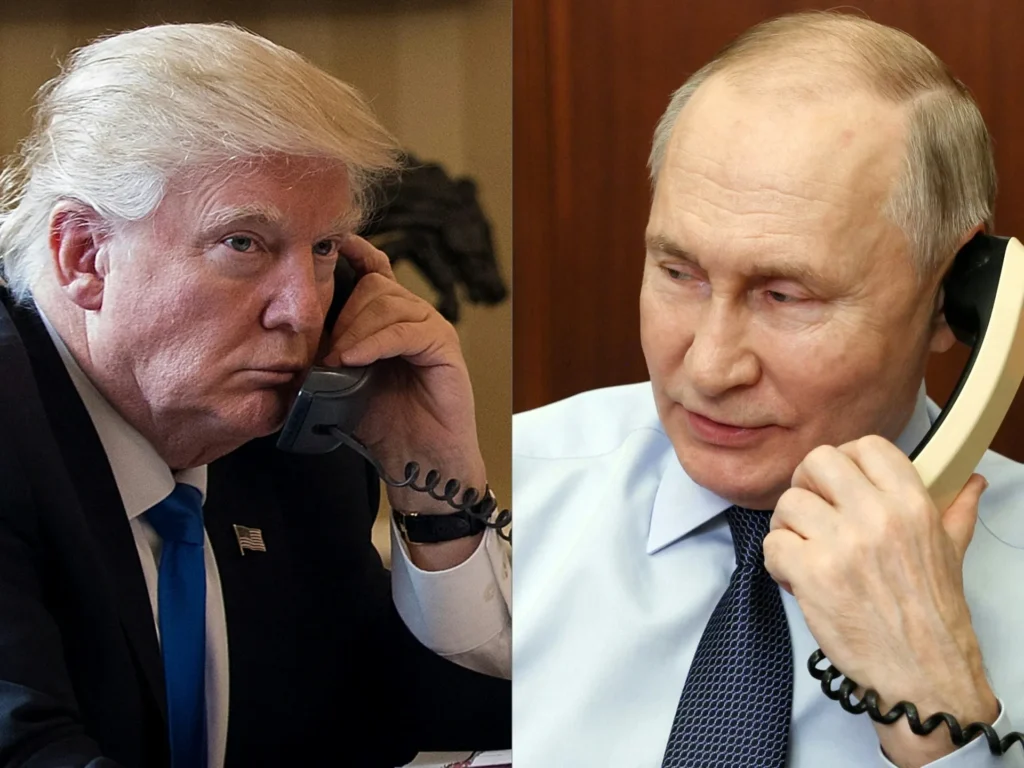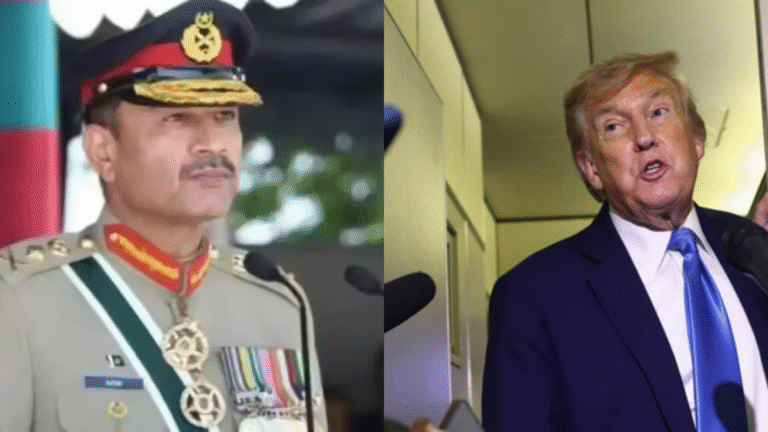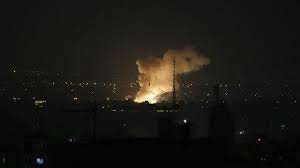
U.S. President Donald Trump and Russian President Vladimir Putin had a two-hour phone call with the intention of addressing the conflict in Ukraine. While President Trump described Ukraine-Russia negotiations as “excellent” and declared that Russia and Ukraine would “immediately begin negotiating a ceasefire and, more importantly, cease the War,” the Kremlin was less forthcoming in its statements, expressing willingness to engage with Ukraine on a memorandum of conditions for a future peace agreement but not committing to an immediate ceasefire.
The Russia-Ukraine war in its fourth year has resulted in total human and economic losses. Previous ceasefires have been short-lived, and international players, including the United States and European nations with varying degrees of participation and strategic interests, have entered the war.
President Trump’s claim that talks would begin right away was received dubiously. The Kremlin stated that it was imperative to deal with the “root causes” of the conflict, i.e., Ukraine’s drive for closer relations with Europe and NATO, and refused to sign an unconditional ceasefire. Ukrainian President Volodymyr Zelenskyy reasserted Ukraine’s willingness for an unconditional ceasefire and appealed for greater international pressure on Russia to seek authentic peace.
The conflict between Russia and Ukraine had its roots much earlier, but the conflict began in 2014 when Ukraine became independent from the Soviet Union and looked towards greater alignment with the West, which Russia did not welcome. When Russia-allied Ukrainian President Viktor Yanukovych was overthrown following widespread protests, Russia annexed Crimea in 2014, enraging global condemnation and unleashing armed conflict in Ukraine’s Donbas region of eastern Ukraine between Russian separatist-backed rebels and Ukrainian government troops. With such ceasefires as the Minsk ones, fighting continued until Russia suddenly intensified it by invading the whole of Ukraine in February 2022 on the grounds of contested claims of “denazification” and the defense of Russian-speaking communities. The war caused extensive devastation, deaths of civilians, and an enormous human rights disaster, provoking severe international sanctions against Russia and Western support for Ukraine. The war continues unabated, with hard-fought battles and diplomatic efforts futile to secure permanent peace, with regional stability and global security at stake.
The difference in words between the U.S. and Russian presidents reflects the intricacies of diplomatic talks in peacemaking. President Trump’s positive description could be intended to showcase achievements for both home and foreign audiences, but without specific commitments from Russia, achieving peace remains uncertain. The absence of a common position among the actors involved might lengthen the war and complicate subsequent negotiations.
President Trump’s claim that talks would begin right away was received dubiously. The Kremlin stated that it was imperative to deal with the “root causes” of the conflict, i.e., Ukraine’s drive for closer relations with Europe and NATO, and refused to sign an unconditional ceasefire. Ukrainian President Volodymyr Zelenskyy reaffirmed Ukraine’s commitment to an unconditional ceasefire and called for more international pressure on Russia to pursue genuine peace.
The divergence in words between the U.S. and Russian presidents mirrors the subtleties of diplomatic negotiations in peacemaking. President Trump’s positive description could be intended to showcase achievements for both home and foreign audiences, but without specific commitments from Russia, achieving peace remains uncertain. The absence of a common position among the actors involved might lengthen the war and complicate subsequent negotiations.
Problems and Nuances in Peace Talks
The various vying narratives by the U.S., Russia, and Ukraine illustrate the diplomatic impediment to putting an end to the war. Trump’s good delivery is maybe partly for political listeners, but the inability to elicit clear commitments from Moscow means that peace remains elusive.
The conflict in Ukraine has various international actors who have divergent agendas, making concerted peace efforts challenging. Previous ceasefires have not worked because of distrust and unresolved fundamental issues, which means that this will need to be negotiated carefully and in good faith by all parties.
Cautious Optimism in Uncertainty
The Trump-Putin telephone call sets a fresh twist to the diplomatic environment of the war in Ukraine. Though it provides with an opportunity for negotiations and possible ceasefire negotiations, the colossal hurdles remain in place. Without decisive action and all-inclusive agreement, peace is unlikely. With the war raging on, all the same, the observers and the protagonists themselves need to strike a balance between expectation for negotiated peace and a shot of realism regarding the hurdles that confront them.
FOR MORE NEWS VISIT QUESTIQA.COM




